7 RV Accident Statistics and Facts in Canada: Updated in 2025
-

- Last updated:
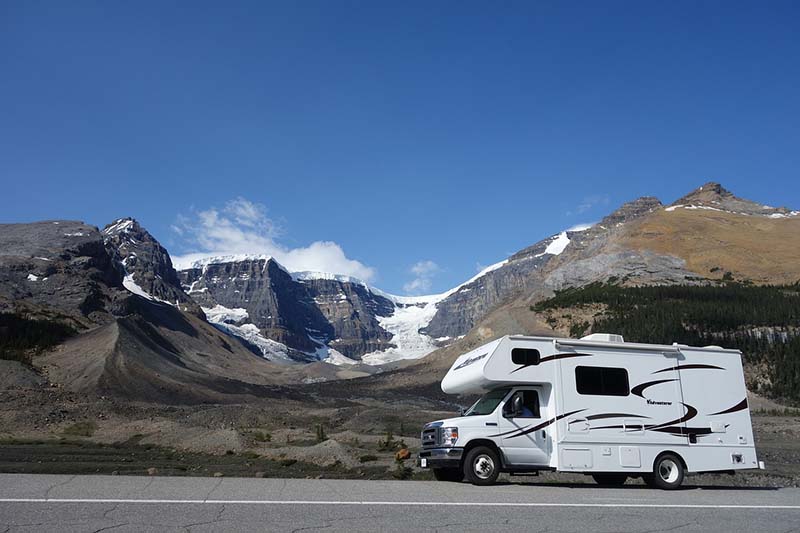
RV’s are ideal for people who love traveling and those who are always on the move. It is the perfect set-up for anyone who wants to gain new experiences and not be tied down to a permanent residence. Whether or not you plan on using your RV to explore new destinations or live more economically, it can be a useful asset to own.
In Canada, you can live in your RV all year round, including winter, but it can be challenging. RVs tend to have blind spots due to their large size, and as a result, accidents are fairly common. To find out more facts and information regarding RV accidents, keep reading.
Click below to jump ahead:
The 7 RV Accident Statistics in Canada
- 1 million Canadians own RVs.
- 56% of RV owners are millennials.
- About 0.7% of fatal traffic accidents involve motor homes.
- Collisions, rollovers, and tire blowouts are the most common types of RV accidents.
- Driving too fast is the most common cause of RV accidents.
- Distracted driving causes about 21% of fatal collisions.
- RVs are susceptible to lightning strikes during camping.
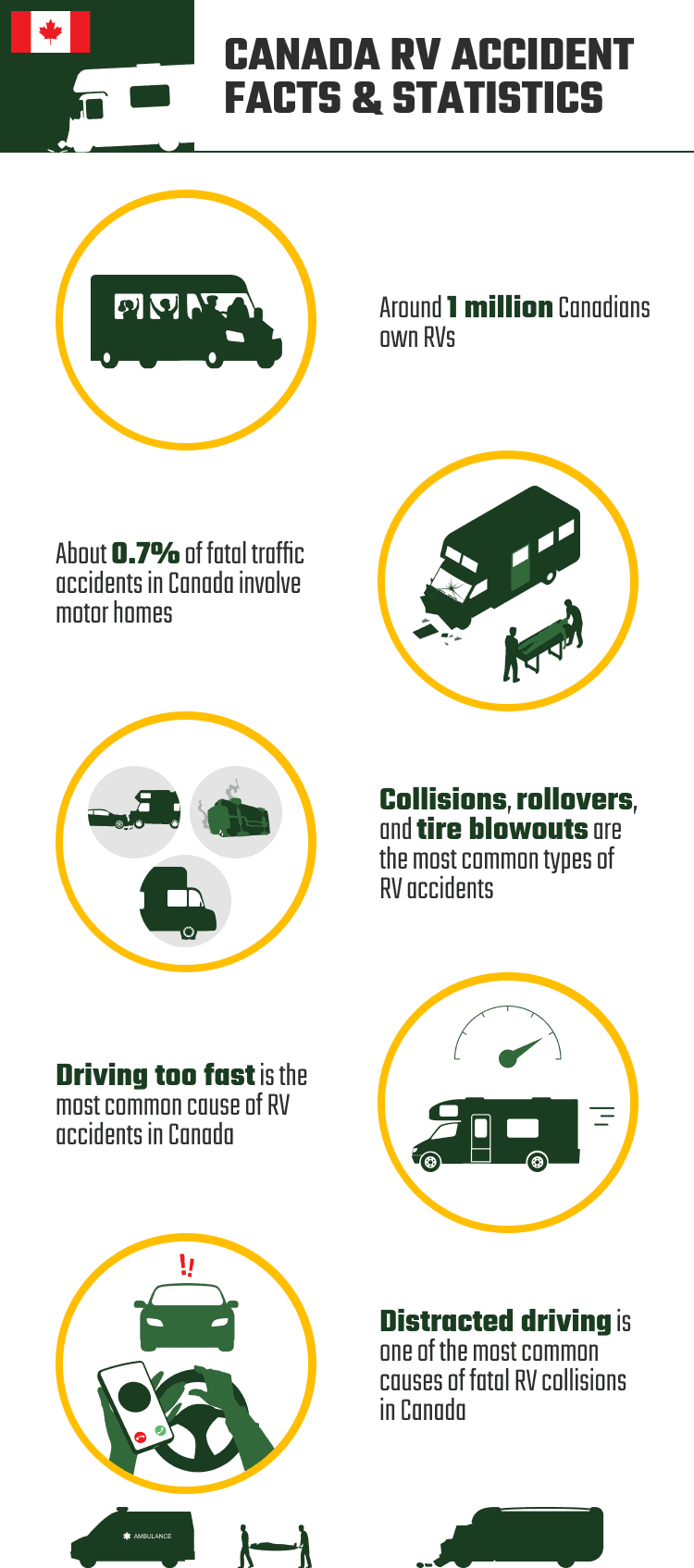
1. 2.1 million Canadians own RVs
(RVDA)
According to the Recreational Vehicle Dealers Association (RVDA) of Canada, there are currently 2.1 million RV owners in Canada. This represents about 14% of the population, which is an increase compared to previous years. Not only is RV ownership growing in Canada, but so is the number of trips being taken with them. With more people taking to the open road in their RVs, it’s important to be aware of the potential risks associated with this type of travel.
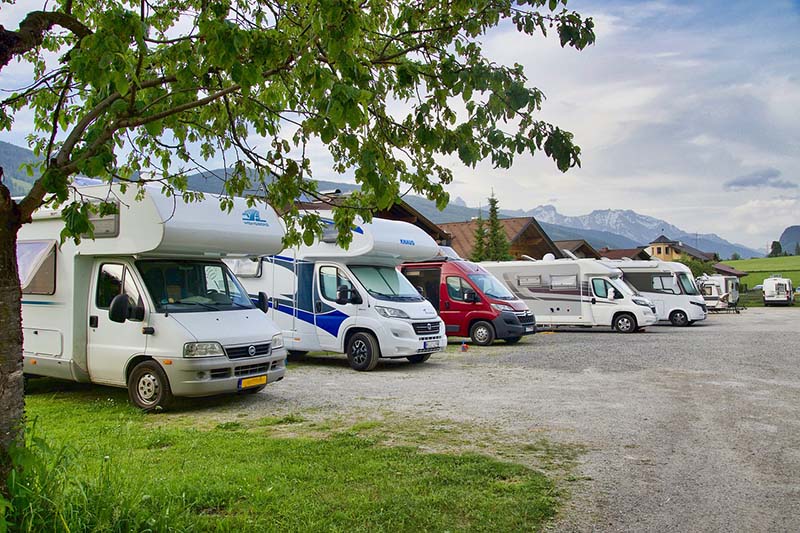
2. 56% of RV owners are millennials
(CRVA)
The data collected by the Canadian Recreational Vehicle Association (CRVA) in 2020 shows that 56% of first-time RV campers in Canada were millennials. This statistic is a reflection of the growing popularity of RV camping amongst younger generations. The survey further revealed that about 33% of Canadian RV owners have been camping their whole life, with some RV owners going camping at least three times a year.
The survey also noted that RVs are being used for a variety of recreational activities and not just for weekend camping trips. More and more Canadians are using their RVs for long-term stays or full-time living as well.
3. About 0.7% of fatal traffic accidents involve motorhomes
(Alberta Traffic Collision Statistics)
Statistics indicate that in 2018, 27% of vehicle accidents resulted in fatal collisions, with motorhomes having one of the lowest stats, 0.7%. Of over 23,000 vehicles, motorhomes had 17 total casualty collisions, 14 of these being non-fatal collisions. In the following year, there were only five motorhomes involved in casualty collisions. This shows a decreasing trend in motorhome collisions, indicating that their drivers are taking the necessary safety precautions to avoid preventable accidents. This data is encouraging, as it highlights the responsible attitude of motorhome drivers across the nation.
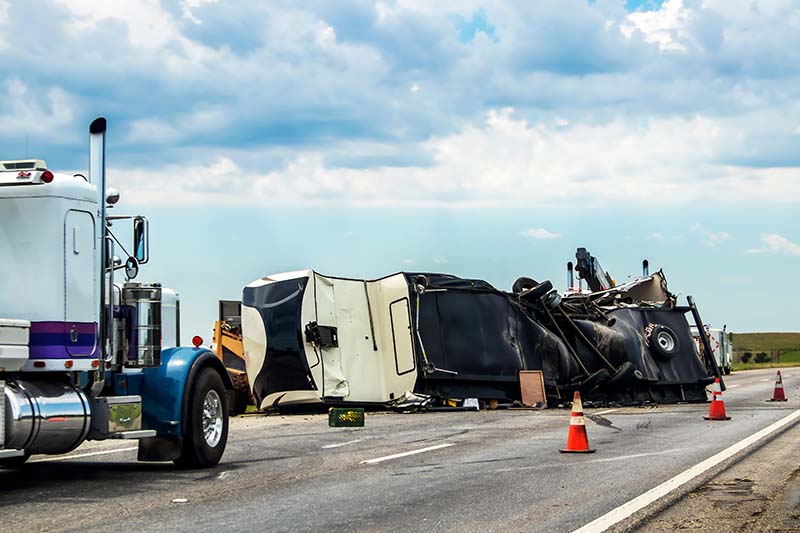
4. Collisions, rollovers, and tire blowouts are the most common types of RV accidents
(Aviva)
It’s no secret that RVing is becoming more popular than ever in Canada. But with increased popularity also comes increased risks. RV accident rates are low in Canada, with Aviva indicating that collisions, rollovers, and tire blowouts are some of the most common RV accidents. These mostly result from overspeeding, fatigue, maintenance issues, and even overloading.
5. Driving too fast is the most common cause of RV accidents
(Trailer Valet)
According to Trailer Valet, driving too fast is the most common reason for RV accidents. Statistics indicate that speeding increases the odds of getting into an accident, especially when driving in rainy or windy weather. Of all crashes, 12% are caused by speed-related incidents. It’s important to be not only aware of your speed limit but also the appropriate safe speed limit for a given condition as well.
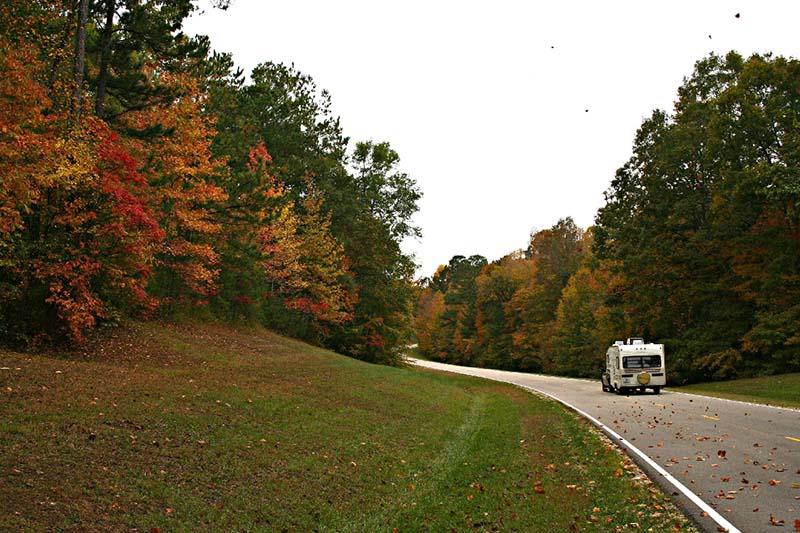
6. Distracted driving causes about 21% of fatal collisions
(Transport Canada)
Distracted driving is one of the most common causes of fatal RV collisions in Canada. This mainly involves multitasking, where drivers tend to take their eyes off the road to text, talk on the phone or to passengers, eat, or use the navigation or entertainment system.
Transport Canada’s National Collision Database figures show approximately 21% of all fatal collisions occur due to drivers being distracted, with 27% resulting in serious injuries. According to Transport Canada, this is part of an upward trend of collisions related to distracted driving, which is an alarming statistic, as distracted driving is a preventable issue.
7. RVs are susceptible to lightning strikes during camping
(Canada.ca)
When you’re out camping in Canada, the last thing you want to think about is getting caught in a severe thunderstorm. Unfortunately, the reality is that RV accidents caused by lightning strikes are a serious danger that Canadian campers should be aware of. It’s stated that pop-up campers with fabric-like sides and fiberglass RVs are the most unsafe, but a steel or aluminum RV is better. Most of these lightning-related accidents are due to setting up RVs in unsafe areas, such as close to isolated tall trees, hilltops, or close to metal fences.
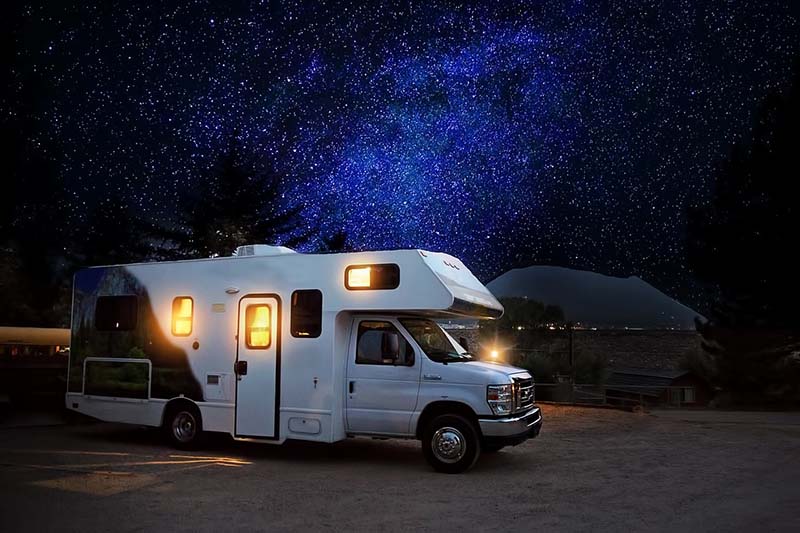
Common Causes of RV Accidents
RVs and trailer homes have grown in popularity in the past decade, and they continue to do so. Unfortunately, the rising number of new inexperienced drivers is prone to increase the number of accidents. To prevent this from happening, we’ve listed all the common causes of RV accidents and how they can be avoided.
Fatigue
Fatigue is the second most common cause of all road accidents. Most RV drivers are on the road for a long time, and they might get too tired, which makes them sleepy and more prone to causing accidents.
If you are driving for a long time, you need to get enough rest in an RV camp or trailer park. Most national parks and forest services also allow RVs to park there at a fee. There are also many free places where you can pack your RV and spend the night.
High Winds
There are higher chances of getting into an accident on a windy day than on a calm day. Although the wind on itself is not capable of flipping the car, modern RVs are made from lighter materials to make them more affordable, which increases the risk of this happening.
Strong winds and driving above the speed limit is an accident waiting to happen; the risk increases significantly when the strong winds are accompanied by heavy rainfall. To avoid this from happening, ensure you get an RV made by a trusted manufacturer that builds them with materials strong enough to withstand strong highway winds.
Blind Spots
Most RVs don’t have rearview cameras, making backing into tight spots challenging. To reduce the risk of an accident occurring this way, you should go outside and check the rear before you reverse or have someone else guide you. You also need to ensure that you take into account the size of your RV before changing lanes or turning on the highway.
Inexperienced Drivers
Some of the common reasons inexperienced RV drivers cause accidents is because they don’t know how to change lanes or turn properly.
Inexperience and overconfidence increase the risk of an accident occurring, especially when driving in harsh weather conditions.
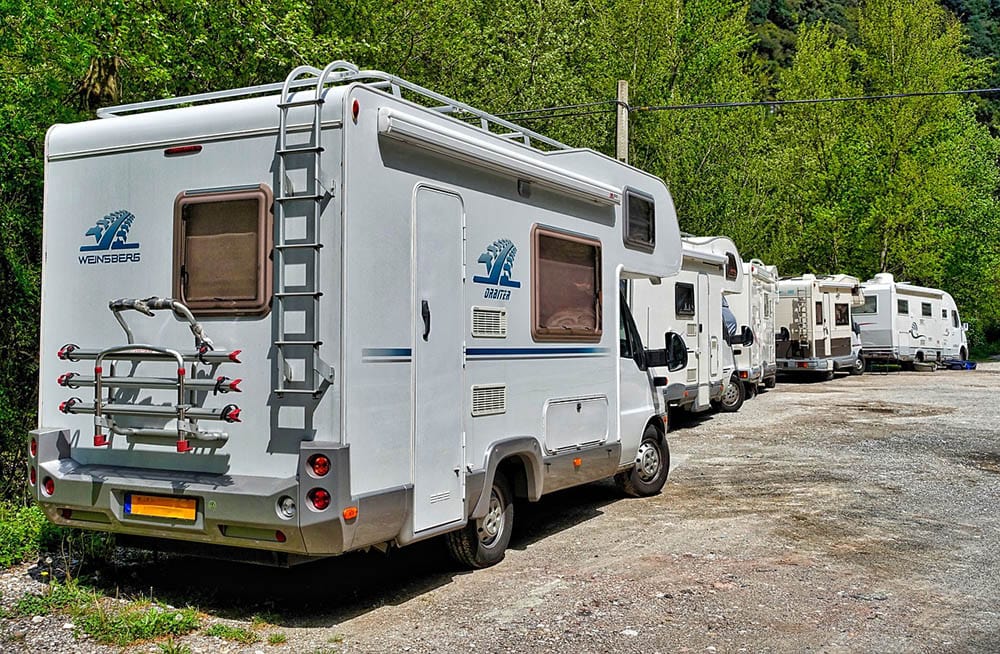
Poor Turns
RV drivers often forget that they are no longer driving a standard vehicle and tend to turn as they would with a standard vehicle. RVs are bigger and heavier than regular cars, and it takes longer to turn them, which causes some inexperienced drivers to get into accidents. You need to be aware of your surroundings and keep an eye on the rearview mirror to prevent an accident of this sort.
Turning an RV requires you to go much slower since the turn is wider. If you are inexperienced, you need to practice turning and stopping before going on a long trip or taking it out on the RV.
Overloading
All RVs have a gross weight rating that dictates the maximum weight they are expected to carry. Ultimately, overloading your RV can cause it to become unbalanced, which might add undue stress to the brakes and suspension, making it unstable. The best way to avoid accidents due to overloading is to pay attention to your RV weight class and respect the weight ratings.
Frequently Asked Questions About RV Accidents
What are the safest RVs in an accident?
Certain RVs are safer in accidents than others; for example, Class B RVs are safer since they are made from tough steel, enabling them to withstand more impact. The second safest RVs are class C RVs; the driver and co-driver are protected during collisions and suffer fewer injuries in these RVs. The least safe RVs are Class A RVs.
What is the main difference between cars and RVs?
RVs are much bigger and harder to control and are more likely to cause a crash with other vehicles on the road. However, due to this, the impact is smaller than in smaller cars. Most cars are closer to the ground, which gives them a lower center of gravity compared to RV, ensuring they stay stable even during bad weather.
What should you consider when purchasing an RV?
Before purchasing an RV, ensure it has been crash-tested and meets the required federal safety standards. They should also come with airbags and a good braking system.
Conclusion
RVs can be pretty dangerous to drive, especially for a new driver, and are easy to get in an accident. You need extensive practice to ensure that you are safe on the road and not a risk to other road users.
The fact that there are few casualties in RV accidents compared to other accidents means that they have a lower mortality rate. They are also slower and higher off the ground, which decreases their risk of getting into a deadly accident, unlike fast cars.
Featured Image Credit: 6493990, Pixabay
Contents

